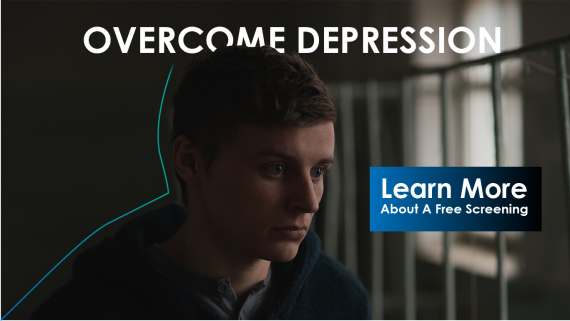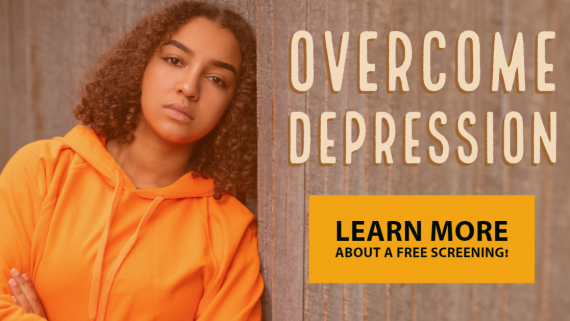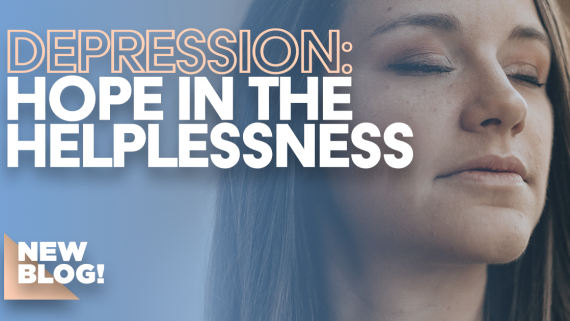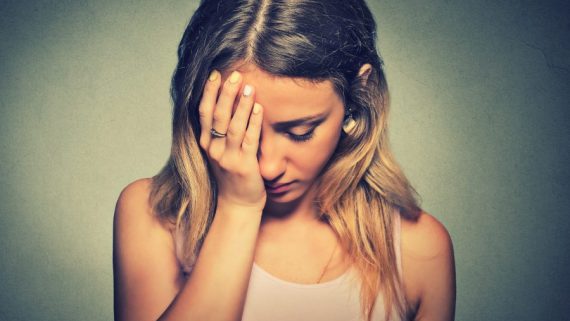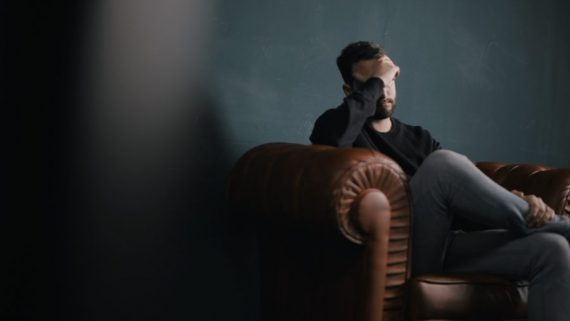
Seasonal Depression
It’s very common to feel sad during this winter season. Millions of Americans suffer from some form of depression every year. That being said, you are not alone. There are many resources to help including free screenings, therapy, support groups, exercising, and many more. However, admitting that you want help is the first step to living a happier and healthier life.
Statistics

Most Common Signs And Symptoms of Depression
- Loss of interest in activities that were once enjoyable
- Fatigue and lack of energy
- Appetite or weight changes
- Physical symptoms such as headaches, stomachaches, or back pain
- Recurrent thoughts of suicide
- Difficulty sleeping, sleep disturbances, and/or having a hard time getting out of bed
- Difficulty thinking clearly, making decisions, or concentrating
- Feeling of isolation or wanting to be isolated for long periods of time
Possible Treatment Options
- Sign up for a clinical trial and/or free screenings for depression
- Therapy – speaking with a psychologist
- Medication
- Exercise (physical and mental), Yoga, Meditation
- Keeping a journal (writing down your thoughts instead of bottling them up)
- Write short and long-term goals for yourself
- Calling a depression hotline if you don’t feel comfortable talking to a therapist
- Seeking support groups, or talking to someone you feel close to
Clinical Research May Be An Option!
As mentioned, participating in a clinical trial is available as a treatment option. The benefits of volunteering for a study include, but are not limited to the following:
- Helping future and current generations
- You or your loved one may have access to new treatments, not available to the public
- Data collected from the results is used to determine whether a new medication or therapy is safe and effective.
ActivMed Practices & Research Inc. is passionate about helping those with depression by conducting clinical trials. If you or someone you know is diagnosed with depression or is not sure whether they have depression learn about these study opportunities and see if you qualify. Click HERE.
Looking Forward
Recovery is a slow process, but these treatment options can be very helpful. However, it is not a race, and you shouldn’t put too much pressure on yourself to get better right away. Depression affects people of all ages, races, ethnicity, and backgrounds. Depression can be deceiving in the sense that the people who appear to be “fine” are actually the people who are struggling with it the most. It is also good to help others who suffer from depression as well. Together we can be healthier.
Ever wondered what a medical screening is and how it could benefit you? Health screenings are tests that look for diseases before you have symptoms. Screening tests can find diseases early, when they’re easier to treat. You can get some screenings in your doctor’s office. Others need special equipment, so you may need to go to a different office or clinic.
Some conditions that are commonly screened for include:
- Breast cancer and cervical cancer in women
- Colorectal cancer
- Diabetes
- High blood pressure
- High cholesterol
- Osteoporosis
- Overweight and obesity
- Prostate cancer in men

ActivMed Practices & Research Inc provides health screenings at no cost to you.
At ActivMed Practices & Research Inc., we offer free medical screenings for Depression, Blood Pressure, Blood Glucose, Memory, and Lungs. Which tests you need depends on your age, your sex, your family history, and whether you have risk factors for certain diseases. After a screening test, ask when you will get the results and whom to talk to about them. Visit our free screenings here.
Memory Screening
Curious as to what to expect from a memory screening? A memory screening can help detect if an additional check-up is needed by a qualified healthcare professional. Interested in learning more? The following article provides more information on memory screenings.
**UPDATE**
We are now able to offer a no contact Telehealth Memory Screening- All information is confidential, following all HIPAA guidelines.
Call us at 978-655-7155 to learn more or request a call online here.
Overview
Depression is never easy to handle especially if you have experienced it for a long time. You might be motivated one day, and then suddenly feel an overwhelming sadness the next day. Taking a shower, eating, or even getting out of bed seems like a chore. You may no longer have the same amount of interest in activities you used to, and often you may just want to be left alone. Maybe you feel that the only person who understands you is yourself. That’s understandable. You are not to blame for feeling depressed.
Depression is the most common mental disorder in the country. Millions of Americans suffer from some form of depression every year. That being said, you are not alone. There are many resources to help including free screenings, therapy, support groups, exercising, and many more. However, admitting that you want help is the first step to living a happier and healthier life.
Statistics
Causes
There is truly no one cause for depression. It depends on a unique combination of an individuals genetic makeup and environmental conditions. The following are a few factors that may contribute to depression:
- The brain’s physical structure or chemistry
- History of depression in the family
- History of other disorders (anxiety, post-traumatic stress disorder)
- Stressful, traumatic events (abuse, constant rejection, death of a loved one, financial issues)
- Hormone changes (menstrual cycles, pregnancy)
- Certain medications (sleeping aids, blood pressure medication)
Signs
Most common signs and symptoms of depression:
- Loss of interest in activities that were once enjoyable
- Fatigue and lack of energy
- Appetite or weight changes
- Physical symptoms such as headaches, stomachaches, or back pain
- Recurrent thoughts of suicide
- Difficulty sleeping, sleep disturbances, and/or having a hard time getting out of bed
- Difficulty thinking clearly, making decisions, or concentrating
- Feeling of isolation or wanting to be isolated for long periods of time
Treatment Options
- Sign up for clinical trial and/or free screenings for depression
- Therapy – speaking with a psychologist
- Medication
- Exercise, Yoga, Meditation
- Keeping a journal (writing down your thoughts instead of bottling them up)
- Write short and long-term goals for yourself
- Calling a depression hotline if you don’t feel comfortable talking to a therapist
- Seeking support groups, or talking to someone you feel close to
Clinical Research
Participating in a clinical trial is available as a treatment option. The benefits of volunteering for a study include, but are not limited to the following:
- Helping future and current generations
- You or your loved one may have access to new treatments, not available to the public
- Data collected from the results is used to determine whether a new medication or therapy is safe and effective.
ActivMed Practices & Research along with other clinical practices is determined to find a cure to depression by conducting clinical trials. If you or someone you know is diagnosed with depression or is not sure whether they have depression learn more about our study options might be the right decision. To learn about these study opportunities and see if you qualify, click HERE.
Looking Forward
Recovery is a slow process, but with time treatment options can be very helpful. At the end of the day, it is not a race, and you shouldn’t put too much pressure on yourself to get better right away. Depression affects people of all ages, races, ethnicity, and backgrounds. Depression can be deceiving in the sense that the people who appear to be “fine” are actually the people who are struggling with it the most. It is also good to help others who suffer from depression as well. Together we can be healthier.
References (Chart taken from)
Overview of Depression
Dealing with depression may feel like you constantly battle with a heavy burden or a shadow of sadness and hopelessness that latches on to you for a long time. Getting out of bed seems like a chore, you may no longer have the same amount of interest in activities as you used to, and often you may just want to be left alone. Maybe you feel that the only person who understands you is yourself. That’s understandable. Depression is an illness, NOT a weakness, and you are not to blame for it.
Depression is the most common mental disorder in the country. Millions of Americans suffer from some form of depression every year. That being said, you are not alone. There are many resources to help including free screenings, therapy, support groups, exercising, and many more. However, admitting that you want help is the first step to living a happier and healthier life.
National Depression Screening Day takes place in October. To view the post discussing this, click HERE.
Depression Statistics
Below is a chart of the percentage of U.S. Adults who have dealt with depression in 2017. The variables range from gender, age, race/ethnicity. Based on the results, most of the people experiencing this major depressive episode were in the 18-25 age range and were identified females. This is not to say that people of other age groups or identified genders are not affected just as much.
Possible Causes of Depression
There is truly not one cause for depression. It depends on a unique combination of an individual’s genetic makeup and environmental conditions.
For instance:
- The brain’s physical structure or chemistry
- History of depression in the family
- History of other disorders (anxiety, post-traumatic stress disorder)
- Stressful, traumatic events (abuse, constant rejection, death of a loved one, financial issues)
- Hormone changes (menstrual cycles, pregnancy)
- Certain medications (sleeping aids, blood pressure medication)
Signs to Look For
Most common signs and symptoms of depression:
- Loss of interest in activities that were once enjoyable
- Fatigue and lack of energy
- Appetite or weight changes
- Physical symptoms such as headaches, stomachaches, or back pain
- Recurrent thoughts of suicide
- Difficulty sleeping, sleep disturbances, and/or having a hard time getting out of bed
- Difficulty thinking clearly, making decisions, or concentrating
- Feelings of isolation or wanting to be isolated for long periods of time
Available Treatment Options
- Sign up for a clinical trial and/or free screenings for depression
- Therapy – speaking with a psychologist
- Medication
- Exercise (physical and mental), Yoga, Meditation
- Keeping a journal (writing down your thoughts instead of bottling them up)
- Write short and long-term goals for yourself
- Calling a depression hotline if you don’t feel comfortable talking to a therapist
- Seeking support groups, or talking to someone you feel close to
Clinical Research May Be an Option!
As mentioned, participating in a clinical trial is available as a treatment option. The benefits of volunteering for a study include, but are not limited to the following:
- Helping future and current generations
- You or your loved one may have access to new treatments, not available to the public
- Data collected from the results is used to determine whether a new medication or therapy is safe and effective.
ActivMed Practices & Research is passionate about helping those with depression by conducting clinical trials. If you or someone you know is diagnosed with depression or is not sure whether they have depression learn more about our study options might be the right decision. To learn about these study opportunities and see if you qualify, click HERE.
Looking Forward
Recovery is a slow process, but these treatment options can be very helpful. However, it is not a race, and you shouldn’t put too much pressure on yourself to get better right away. Depression affects people of all ages, races, ethnicity, and backgrounds. Depression can be deceiving in the sense that the people who appear to be “fine” are actually the people who are struggling with it the most. It is also good to help others who suffer from depression as well. Together we can be healthier.
Reference for this post:
https://www.psycom.net/depression.central.html
Life is a constant roller coaster of challenges and victories. Feeling sad or hopeless is something we all experience at some point in our lives For many, these feelings persist and may require medical intervention.
The Black Hole
Depression is one of the most common mental health disorders in the U.S., affecting men, women, and children from all walks of life. Depression can deeply impact every aspect of life. Symptoms can include difficulty concentrating, anger and irritability, loss of energy, and loss of interest in the things we once loved.
Depressive episodes are when these symptoms do not go away for long periods. Below are some quick facts about those affected:
- 3 % of American Adults (18+) are affected
- Depression is more prevalent in women than men
- 9 million children (ages 3-17) have been diagnosed with depression
- Adults with depressive disorders have a 64% higher chance of developing coronary artery issues
Types of Depression
Depression affects everyone differently. How each person responds to treatment is also different, so understanding the various types of depression can be an important piece in finding the most effective treatment. Below are some common types of depression along with a general understanding of each:
- Major Depression– Recurrent depressive episodes that if left untreated, can last up to 6 months.
- Atypical Depression– Those who have it experience a temporary mood elevation from positive events such as receiving good news, hanging out with friends, etc.
- Dysthymia (Recurrent Mild Depression)– Symptoms are not as strong as major depression but can last for long periods. Those with this type of depression feel moderately depressed more days than not.
- Seasonal Affective Disorder (SAD)– Feeling of sadness, stress, and being tense beginning in fall or winter when daylight hours are reduced. This usually lasts until spring, when there is more sunlight.
Clinical Studies and Depression
Up to 80% of those treated for depression show improvement in symptoms within 4-6 weeks of beginning psychotherapy, medication, attending support groups, or a combination of these. Sadly, 2 out of every 3 people with depression do not actively seek treatment or receive proper treatment. Consulting your physician is the only way to truly be diagnosed and treated properly.
A clinical study conducted by ActivMed in our Methuen location could also benefit individuals who battle with this disorder. If you or someone you know is suffering from depression or feel like pieces are missing from your current depression treatment, these studies may be a great opportunity. Qualified candidates who participate will receive study-related care at no cost and compensation for travel. To learn more about our depression studies, please click HERE.
References:
https://www.helpguide.org/articles/depression/depression-symptoms-and-warning-signs.htm
https://www.dbsalliance.org/education/depression/statistics/
When someone says that they have depression, many people compare it to being sad or upset, but that’s only a small part of it. A general assumption about depression is that someone who has been diagnosed is temporarily going through something stressful, hurtful, or difficult. What they don’t realize is that it’s not all environmental. A bad day at work or a fight with your significant other is not the sole thing that makes someone feel this way; it’s also mental.
So, what is depression?
Depression is a mood disorder that affects a person’s entire life. This is not just a feeling of sadness, it is the lack of enjoyment and importance for things that were once a priority for a person. Other symptoms include feelings of hopelessness, lack of concentration, and even restless sleep. All of these things have an impact on all aspects of life; work, school, relationships, and general life.
How do I know if I’m depressed?
Being diagnosed with this disorder would mean that someone has been experiencing the symptoms mentioned before, almost every day for a two-week period or longer. That’s not to say that, just because you have these symptoms, means that you should assume that you are depressed. Consulting your physician is the only way to truly be diagnosed and treated properly. They will be able to help you learn the best ways to cope and start living a healthier life.
What comes next?
If you or a loved one is experiencing signs of depression, know that you are not alone. Hundreds of millions of people around the world have experienced the same things. It is important to keep in mind that this feeling is not permanent. A clinical study conducted by ActivMed at our Methuen location could also benefit individuals who battle with this disorder. We are currently seeking participants, and those who qualify will receive not only study-related care at no cost, but compensation for travel. To learn more about this study and how you or a loved one could qualify, CLICK HERE.
World Mental Health Day (October 10) and National Depression Screening Day (October 11)
are both held annually during Mental Illness Awareness Week in October. Both days are recognized globally in an effort to raise public awareness of behavioral and mental health issues, working to reduce stigma, and changing overall attitudes about mental health.
The 2018 campaign for World Mental Health Day is focused on Young People and Mental Health in a Changing World. According to the World Health Organization (WHO), half of all mental illness begins at the age of 14, and most remain undetected and untreated, with depression being the third leading cause. Suicide is the second cause of death among those between 15 and 29, with harmful use of alcohol and illicit drugs being a major issue. The goal of this year’s campaign is to bring attention to the issues youths and young adults are facing in the world today and begin the conversation around what they need in order to grow up healthy, happy and resilient.
World Mental Health Day was observed for the first time back on October 10, 1992. It was started as an annual activity of the World Federation for Mental Health by the Deputy Secretary General Richard Hunter. Back then, the day had no specific theme or topic and the goal was to promote mental health advocacy and to educate the public on relevant issues. The day is officially commemorated annually on October 10th.
National Depression Screening Day
was pioneered in 1990 by Screening for Mental Health (SMH). It was the first voluntary, mental health screening initiative. The day began as an effort to reach individuals across the country to help educate them on mental health issues and connect them with support services.

ActivMed will be offering FREE DEPRESSION SCREENINGS during the month of October in recognition of World Mental Health Day. If you or someone you love has been experiencing depression symptoms, you may request an appointment by CLICKING HERE.
Research studies for potential new depression treatments are also enrolling now. If you have been diagnosed with depression and are unhappy with your current treatment, you may be eligible. Qualified candidates who participate will receive study-related care at no cost and receive compensation for travel. To learn more and see how you or someone you love may qualify for a study, CLICK HERE.
Each year, millions of people face the tough reality of living with mental illness. It’s estimated that over 16 million Americans struggle with depression, and as many as 2.2 million adults struggle with Obsessive-Compulsive Disorder (OCD). October 7-13 is Mental Illness Awareness Week and this year’s message is all about fighting the stigma associated with mental health.

The 2018 campaign promoted by the National Alliance on Mental Illness (NAMI) has been termed “CureStigma.” While NAMI stresses the importance of discussing mental health conditions year-round, this year’s campaign highlights them during Mental Illness Awareness Week.
In 1990, Congress officially established the first full week of October as Mental Illness Awareness Week (MIAW)[i] and ever since then, advocates have worked together to educate the public, provide support, and fight the stigma surrounding mental illness.
Did you know that mental health conditions are the leading cause of disability across the United States? Even though most people can be successfully treated, less than half of the adults in the U.S. reach out and seek the help and treatment that they need. Why? Stigma, for one. Some people describe stigma as a feeling of shame or judgment from someone else. [ii] Stigma can create giant hurdles when it comes to reaching out, getting needed support and overall living well.
It’s time to start standing up to the stigma related to mental illness. If you or someone you love is battling mental illness, you’re not alone. ActivMed is seeking patients to take part in clinical studies for both Depression and OCD. Qualified candidates who participate will receive study-related care at no cost and receive compensation for travel. To learn more and see if you qualify for a depression study at our Methuen, MA location, CLICK HERE. To learn more about OCD studies at our Portsmouth, NH site, CLICK HERE. YOU can help us make a difference today!
[i] https://www.nami.org/Get-Involved/Awareness-Events
[ii] https://www.nami.org/Get-Involved/StigmaFree
Everyone has experienced some type of sadness at some point in their lives. Hard times at home or work, personal loss, and relationship problems can all lead to feeling sad. It is a normal human emotion that we will continue to experience at various times throughout our lives. The good news is, the feeling of sadness will go away. Once the problem has resolved, or the hurt that we have experienced has faded, our sadness fades too.
Depression is different than sadness. Depression is a mood disorder that affects all aspects of life, making everything less enjoyable, less important, and putting a strain on the body. Depression may cause you to feel impatient and quick to anger. To be diagnosed with depression, symptoms must be present most of the day, nearly every day for at least two weeks.
Depression can interfere with working, sleeping, school, and life in general. It’s important not to give up and focus on strategies to help manage this condition.
First off, know that you’re not alone. Many other people are fighting similar battles. Some of us are experts at putting on a happy face to conceal what’s really going on behind the mask. Social media is a good example of this.
Secondly, spending time alone (as most who are depressed tend to do) isn’t the best choice. Alienating yourself from the support of friends and loved ones is the last thing you need during this time. Make sure to keep your relationships intact. Joining a gym together or attending a workout class is a great option. Not only are you spending time with a friend, but studies have shown that exercise has a positive effect on your mood.
Finally, know there’s a light at the end of the tunnel. While you’re not going to feel good all of the time, we as humans are capable of making changes. Our brains can form new, positive habits which can have long-term effects.
Millions of people around the world are experiencing, or have experienced, depression. If you or someone you love has been diagnosed with depression and feel like you are out of options, a research study may be an option. ActivMed is currently seeking participants for several current and upcoming studies. Qualified candidates who qualify and participate will receive study-related care at no cost and receive compensation for travel. To learn more and see how you or someone you love may qualify for a study, click HERE.
The term ‘millennials’ refers to the roughly 85 million people reaching young adulthood in the early 21st century. This group has also been deemed ‘Generation Y’ and typically refers to those born in between the 1980s and 1990s. Millennials may often be viewed by sociality as a lazy and entitled group of individuals. Yet, it is estimated that approximately 1 in 5 millennials suffer from depression. Why is depression among this generation in America soaring?
One reason for this epidemic is supply and demand in the workforce. Millennials are the most educated generation in history. Unfortunately, the supply of educated millennials significantly exceeds the demand for workers. According to Forbes, the millennial unemployment rate rests at 12.8%, compared to the national average rate of 4.9%. Many that do find jobs, end up settling into low paying positions that don’t utilize their skills, or jobs that only offer part-time work.
Another factor contributing to depression amongst Generation Y is student loan debt. According to The New York Federal Reserve the total student loan debt is estimated to be over $1.3 trillion. Student loan debt in the U.S. is more than auto and credit card debt combined, only falling short of mortgage debt. The average student loan debt for a millennial is $30,000 while the average salary is less than $35,0000 annually. This may also be a contributing factor to why more than 30% of millennials are living back with their parents.
Growing up with technology on the rise and at their fingertips, millennials and are used to instant gratification. The explosion of social media created ways to filter their lives, and may not depict reality. Preoccupations with comparing each other’s lives can also lead to serious symptoms of depression.
If you or someone you love is struggling with depression and not happy with current treatment, ActivMed is currently enrolling in studies for those seeking new treatment options. Study participants who qualify are closely evaluated by a board-certified physician and research staff. Reimbursement is also available for travel in the form of travel stipends. To learn more and see how you or someone you love may qualify for a study, click HERE.



